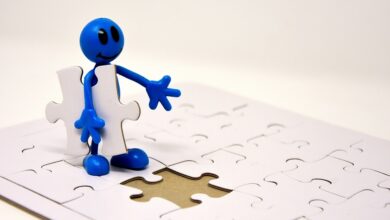The Benefits of Puzzle Games for Children with Learning Disabilities

1. Enhances problem-solving skills: Puzzle games require children to use critical thinking and problem-solving skills. As children solve different puzzle pieces and arrange them to create a complete picture, they learn to analyze and strategize. This can greatly help children with learning disabilities improve their ability to solve problems in other academic areas as well.
2. Promotes focus and attention: Children with learning disabilities often struggle with focus and attention span. Puzzle games provide a fun and engaging way to improve these skills. By concentrating on selecting and fitting puzzle pieces, children develop the ability to stay focused for longer periods of time, a skill that is crucial in school and other learning environments.
3. Boosts visual perception: Many learning disabilities affect a child’s visual perception, making it challenging for them to understand and interpret visual information. Puzzle games can help improve this skill by requiring children to visually analyze and sort different shapes, colors, and patterns. This process strengthens their visual discrimination ability, allowing them to better understand and interpret visual information in other contexts.
4. Develops fine motor skills: Handling puzzle pieces and manipulating them to fit into their designated places helps children improve their fine motor skills. Children with learning disabilities often struggle with fine motor skills, which can affect their ability to write, draw, or perform precise hand movements. Puzzle games provide an enjoyable way to develop and refine these skills, giving children more confidence in their daily activities.
5. Encourages persistence and resilience: Learning disabilities can often lead to frustration and low self-esteem. Puzzle games offer an opportunity for children to practice persistence and resilience in a safe and supportive environment. As they encounter challenges while solving puzzles, children learn to persevere and overcome obstacles, boosting their confidence and motivation to tackle other difficult tasks.
6. Enhances memory and cognitive skills: Puzzles require children to remember shapes, colors, patterns, and other visual details. This strengthens their memory and cognitive skills, which can be beneficial for children with learning disabilities such as dyslexia or dyscalculia. By engaging in regular puzzle-solving, children can improve their memory retention and recall, which can positively impact their academic performance.
In conclusion, puzzle games offer a wide array of benefits for children with learning disabilities. These games can enhance problem-solving skills, promote focus and attention, boost visual perception, develop fine motor skills, encourage persistence and resilience, and enhance memory and cognitive skills. By incorporating puzzle games into their routine, parents and teachers can provide children with an enjoyable and effective way to develop vital skills that support their overall learning and development.





